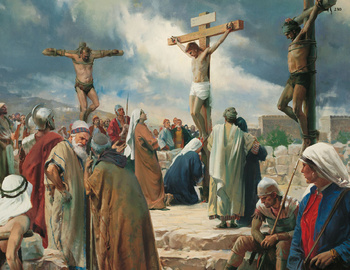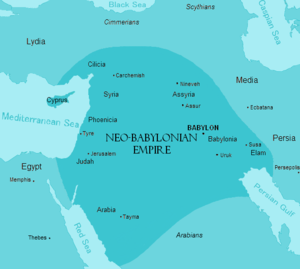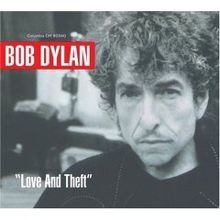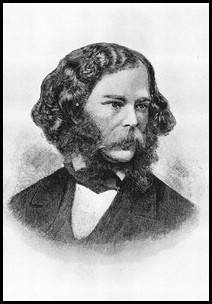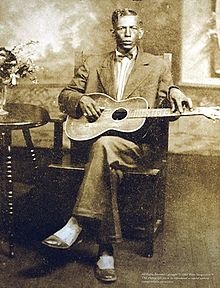Gereformeerd en Charismatisch met elkaar in gesprek.
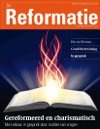
Het blad ‘De Reformatie’ heeft onlangs een nummer[1] gewijd aan ‘Gereformeerd en charismatisch – Met elkaar in gesprek door middel van vragen’. Op twee artikelen reageer ik in het kort. Het eerste artikel is van Hans Burger: ‘Huiswerk voor Gereformeerden’. Het tweede artikel waarop ik reageer is van Ds Bas Luiten ‘Genade, Geest en gaven’ –belangrijke gereformeerde vragen aan charismatische christenen’.
Eerst het artikel van Hans Burger. Burger formuleert een zestal kritische vragen die vanuit charismatische hoek aan gereformeerden gesteld zouden kunnen worden en onderneemt vervolgens een poging om vanuit de gereformeerde praxis na te gaan in hoeverre deze vragen hout snijden. In zijn beantwoording van de kritische vragen spant Burger zich in om zo veel mogelijk ‘credit’ te geven aan de bezwaren van de charismatici en eerlijk in de door hem zelf gefabriceerde spiegel te kijken. Een enkel punt licht ik eruit.
De eerste vraag die gereformeerden zich zouden kunnen stellen, luidt: ‘Hanteren wij wellicht een gesloten wereldbeeld?’. In een gesloten wereldbeeld heeft God geen plaats en lijkt leven zonder God prima te kunnen. Burger stelt: ‘Ook wijzelf, gereformeerden, hebben last van die neiging tot afgeslotenheid voor God. Gereformeerden, in Kuyperiaans-vrijgemaakte variant, zijn betrouwbare doeners. Zij neigen tot nuchterheid, in elk geval in Nederland. We laten ons niet snel in het hart kijken en zijn niet zo goed in geloofsgesprekken. Voor het drijfzand van de beleving zijn we wat huiverig. Liever richten we ons op het objectieve van Gods belofte en het normatieve van Gods wet. Het geloof blijft daardoor veelal impliciet. Het is er wel, maar krijgt te weinig woorden’. Er schijnt dus volgens Burger een ‘Kuyperiaans-vrijgemaakte variant’ van Gereformeerden te zijn (geweest). Ik ken die variant niet. De term ‘Kuyperiaans-vrijgemaakt’ lijkt me nogal tegenstrijdig. Waren het juist niet de latere vrijgemaakten die de leer van de z.g. ‘veronderstelde wedergeboorte’ van Dr. A Kuyper hartgrondig verwierpen? Hoe kan je dan ‘Kuyperiaans –vrijgemaakt’ zijn? Welke generatie bedoelt Burger eigenlijk? Laten we in eerste instantie maar eens kijken naar de generatie die het meest lijkt te beantwoorden aan de omschrijving die Burger in dit citaat hier geeft. Dat is de generatie die de Vrijmaking van 1944 als volwassene bewust heeft meegemaakt en/of in die Vrijmaking een rol heeft gespeeld. Die generatie is nu in een snel tempo aan het uitsterven. Voor de naoorlogse baby- boomers –waartoe ik mijzelf ook reken – gaat het dan om de ouders en voor de huidige generatie veelal om de grootouders.
Die oude generatie die heeft er van ons de laatste jaren flink van langs gekregen. Velen van hen streden fanatiek, met inzet van alle krachten, voor het behoud van Schrift en belijdenis, inclusief een zuivere kerkleer. Daar hadden ze veel, zo niet alles voor over. In die strijd, die polemiek, gebruikte men – soms ook over en weer- grote woorden, eerst in de richting van de ‘synodalen’ en later ook in de richting van de z.g. ‘buitenverbanders’. Woorden die als we ze nu, vele decennia later, lezen, met afgrijzen vervullen. Verbijsterd en met plaats vervangende schaamte vragen we ons af hoe het zo ver heeft kunnen komen dat we elkaar genadeloos afmaakten. Natuurlijk, het is nu gemakkelijk oordelen. Je moet alles in de context van die tijd zien. Toen ging dat immers zo. Zo werd er toen gepolemiseerd. Elke tijd heeft immers zijn eigen vragen, uitdagingen en blinde vlekken. Je kunt er de klok op gelijk zetten dat komende generaties –althans indien de Heer niet is terug gekomen - zich ook verbijsterd zullen afvragen waarom wij in bepaalde situaties zus en zo gehandeld hebben en waarom niet anders en waarom we op bepaalde punten zo nalatig en naïef zijn geweest. Laten we in ieder geval voorzichtig zijn met al te grote woorden te uiten over vorige generaties.
Nu krijgt die generatie gereformeerden –en hun nazaten- ook nog te horen dat ze een ‘impliciet’ geloof hadden c.q. hebben. Het geloof is er wel maar krijgt te weinig woorden zo wordt gesteld. Dat komt ervan volgens Burger als je gefocust bent op ‘ het objectieve van Gods belofte en het normatieve van Gods wet’. Het verwijt ‘te weinig woorden’ kan een terecht verwijt zijn en we hebben dat ons aan te trekken. Als geliefden hun liefde voor elkaar niet in woorden weten uit te drukken, dan wordt die liefde maar een saaie bedoeling met maar weinig uitstraling. Dan klopt er iets niet. Daar staat tegenover dat, als geliefden de intimiteit van hun omgang met elkaar, hun bedgeheimen, aan de grote klok hangen, het een smakeloze vertoning wordt. In grote lijnen gaat het er in het geloof ook zo aan toe. Waar het hart vol van is, daar loopt de mond over. Als je zoveel liefde van de Heer ervaren hebt, dan vertel je andere mensen daar graag over. Tegelijkertijd heeft het iets breekbaars en kwetsbaars. Het hart is om een oud woord te gebruiken ‘arglistig’. Voor je het zelf in de gaten hebt, komen niet de grote daden van de Heer op de voorgrond te staan maar jijzelf, met jouw eigen daden, ervaringen en prestaties. Daar moesten die gereformeerden van toen – en velen ook nu nog - niets van hebben. Dat waren en zijn inderdaad echte ‘doe’ mensen, zo in de trant van: ‘Doe maar gewoon dan doe je al gek genoeg’. Als er één ding is waar die generatie van de vrijmaking in te prijzen is, dan is het dit: trouw. Ze gingen ervoor en hun ja was ook ja, ook als het moeilijk werd en het hen vee kostte. Weglopen voor problemen was er nooit bij, ook al schoten ze in het tackelen van die problemen soms veel te ver door.
We komen vandaag steeds meer broers en zussen tegen, ook in de gereformeerde kerk, die- heel anders dan die vrijgemaakten van het eerste uur - heel expliciet zijn in het uitdragen van hun geloof. Ze hebben de naam Jezus voor in de mond liggen. Ze spreken continu over Jezus volgen, het is Jezus voor en Jezus na en alles wordt in gebed aan de Heer voorgelegd. Ze spreken ook met anderen openlijk over hun persoonlijke band met Jezus. Dit is een goede zaak en iets om echt om jaloers op te worden. Maar hoe oprecht en integer deze broers en zussen ook zijn, we zien ook bij sommigen van dit type gelovigen een bepaalde trend, een andere kant die als een schaduwzijde getypeerd moet worden. Vaak geven deze broers en zussen er blijk van dat hun persoonlijke band met Jezus zo sterk is dat ze ook allerlei persoonlijke boodschappen en instructies van Jezus ontvangen hoe ze in bepaalde situaties hebben te handelen. Het lijkt erop dat men een apart lijntje met de hemel onderhoudt. In de praktijk blijkt het dan moeilijk om tegen bepaalde opvattingen van deze broers en zusters vanuit de Bijbel bezwaren in te brengen. Immers, deze broers en zusters hebben de neiging zich bij bezwaren van anderen te beroepen op hun gevoel dat het Jezus of de Geest is is die hen een bepaald standpunt heeft ingegeven. Het wordt daardoor een individueel geloof dat zich door anderen niet gemakkelijk wil laten corrigeren en dat ten diepste gebaseerd is op gevoel. Je krijgt te maken met allerlei gevoelsargumenten die niet meer openstaan voor rationele argumenten vanuit de Bijbel of vanuit de kerkgemeenschap. Het kan niet anders of een individueel geloof moet zich keren tegen de gemeenschap, tegen de Bijbelse z.g. ‘koinoonia’. Dit type gelovige laat vaak maar weinig geduld zien en als men tegenspraak of tegenwerking ondervindt van anderen, dan heeft men snel de neiging om teleurgesteld af te haken en de benen te nemen. Kortom, het ontbreekt vaak aan twee essentiële Bijbelse begrippen nl. ‘trouw’ en ‘ volharding’, begrippen waar vorige generaties veel meer van hadden en die vandaag in toenemende mate gemist worden. Zonder die twee begrippen gaat het toch echt niet lukken in de kerk.
Dat apart lijntje met de Geest dat veel gelovigen zeggen te onderhouden, zorgt zoals gezegd voor een individueel toegesneden geloof. Daarin is zeker de invloed van de charismatische beweging merkbaar met zijn neiging om Woord en Geest van elkaar te scheiden. Maar dat niet alleen. Want wat bij Burger echter niet in beeld komt is het individualisme dat vanuit de cultuur en de maatschappij een geweldige invloed op ons denken en handelen verworven heeft. Het individualisme dat hand in hand gaat met de secularisatie heeft in de maatschappij gezorgd voor een afbrokkeling van de zuilen en de gezagsverhoudingen. Het van God los geslagen individu is, zoals Ds B. Luiten elders[2] in dit nummer schrijft, ‘zelf verantwoordelijk geworden voor geluk of ongeluk, is iets niet meer leuk, dan is men bijna aan zichzelf verplicht om over te stappen naar iets anders’. Ds Luiten besluit: ‘Jezus benadrukt het recht, de barmhartigheid en de trouw (Mat 23:23). Hier komt het op aan’.
Dan in het kort nog iets over het artikel van Ds. Bas Luiten ‘Genade, Geest en gaven’[3]- Ds Luiten stelt 10 belangrijke vragen aan charismatische christenen en geeft daar vervolgens zelf commentaar op. Ds Luiten doet dit vanuit een bewogen hart omdat hij –terecht - aan beide kanten het werk van de Geest van God ziet. De toonzetting van het artikel is dan ook enerzijds mild maar anderzijds ook confronterend, juist omdat het gereformeerde gedachtengoed Ds Luiten zo dierbaar is. Ik moet u zeggen dat ik nog nooit eerder de belangrijkste geschilpunten met de charismatici op een zodanige compacte wijze en zo ‘to the point’ onder woorden heb zien brengen. Dit artikel is m.i. dan ook verplichte lectuur voor alle ambtsdragers , pastorale werkers en catecheten, maar natuurlijk ook voor heel de gemeente!. Wat mij betreft heeft dit stuk de kracht van een manifest en zijn deze vragen en antwoorden zo actueel dat ze een goede basis kunnen vormen voor toevoeging aan bijv. H.C. Zondag 20 over het werk van de Heilige Geest, aan Zondag 27 over de doop enz.. Vrijwel alles uit dit artikel is het citeren waard, maar ik moet me beperken. Ik stip een paar punten aan.
Overtuigend toont Ds Luiten aan dat het nieuwe verbond niet in de plaats van het verbond met Abraham is gekomen, maar dat dit verbond het verbond verving dat op de berg Sinaï werd gesloten (Hebr. 8:9) ‘De Geest schrijft Gods geboden in onze harten, dat is het nieuwe (Hebr. 8:10)!Dit verbond met Abraham is ons dierbaar, omdat God het ook met de kinderen heeft opgericht (Gen.17) Wij worden door genade behouden, ‘net als Isaak die als kleine jongen werd besneden (Gal 4:28)’. God blijft in elk stadium van het verbond altijd dezelfde. Als Hij tegen het volk Israël zegt dat Hij het op adelaarsvleugels gedragen heeft (Ex. 19:4), dan blijft Hij dat ook nu doen.
Prachtig ook hoe de ‘pars pro toto’ – een deel voor het geheel – gedachte wordt uitgewerkt en op een hoger niveau wordt gezet wanneer Ds Luiten schrijft: ‘Is de doop niet de besnijdenis in het groot? Vroeger werd een stukje vlees weggesneden, in de doop wordt heel ons lichaam begraven (Kol 2:11-12). Ligt hierin niet de aanwijzing dat de doop ons is gegeven in het verlengde van de besnijdenis?’. Zo worden we steeds rijker omdat in de Nieuw testamentische bedeling heel ons leven een ‘heilig en God welgevallig offer’ wordt (Rom. 12:1).
Voorts wijst Ds Luiten ons er fijntjes op dat het woord ‘tongentaal’ geen goede vertaling is van het Griekse woord ‘γλῶσσα’. We lezen: ‘Het Bijbelse ‘glossa’ betekent óf tong óf taal – een van beide, maar niet ‘tongentaal’. Zo kan in het Nederlands ‘leer’ ladder betekenen óf gelooide huid. De vertaler moet kiezen, maar een ’ leren ladder’ is onzin’. Uit het vervolg blijkt dat Ds Luiten voor ‘taal’ kiest wanneer hij schrijft dat het spontaan spreken van een buitenlandse taal gezien moet worden als hét wonder van de Pinksterdag.
Ten slotte nog iets over vraag 9: ‘Waar in de Bijbel wordt de verantwoordelijkheid voor onze schuld aan de satan toegeschreven? . Wat mij betreft vraagt de beantwoording om een nadere toelichting. Terecht schrijft Ds Luiten: ‘Nergens leert de Bijbel ons dat wij demonen moeten opzoeken om hen uit te drijven. Het zoeken van contact met geesten en demonen is ons toch juist uitdrukkelijk verboden?’. We zien tijdens de rondwandeling van Jezus op aarde een toename, een explosie, van demonische krachten, mensen die door demonen zijn bezet en die het pad van het ambtswerk van Jezus kruisen. De duivel krijgt de ruimte om nog één keer met alle macht alle demonische registers open te trekken om zo het verzoenend werk van Christus te blokkeren. De vraag die nu gesteld kan worden is deze: Is sinds de overwinning van Jezus aan het kruis de macht van satan om mensen demonisch te bezetten niet op zijn minst sterk ingeperkt? Volgens het artikel van Hans Burger echter niet, want die schrijft dat ‘in onze niet meer christelijke wereld zou Christus als koning de invloed van het kwaad en van de duivel wel eens kunnen laten toenemen. Wanneer mensen expliciet de invloed van het kwaad zoeken en zich openstellen voor kwade geesten, krijgt de duivel meer ruimte dan hij voorheen in een christelijk Nederland had’. De vraag is of wat Burger hier schrijft identiek is aan demonische bezetenheid. Ik betwijfel dat. In de loop der eeuwen is men echter, wat men eerst voor demonische bezetenheid hield, door de ontwikkeling van de psychiatrie meer en meer gaan zien en herkennen, niet als een demonische bezetting, maar als een psychische ziekte, waarbij men, bij wijze van spreken, in toenemende mate verwees naar de psychiater i.p.v. naar de exorcist. Daarmee kan men een hoop angst voor ‘vermeende’ demonische bezetting en de daaruit voortvloeiende beschadiging worden voorkomen. Bij een psychische ziekte immers, hoeft er helemaal geen sprake van zonde te zijn en verwijzen we door naar de psychiatrische hulpverlening.
Terecht schrijft Ds Luiten dat het uitdrukkelijk verboden is om contact te zoeken met geesten en demonen. Het is bovendien nog erg gevaarlijk ook. Maar wat moeten we doen als wij deze demonen niet opzoeken maar als die demonische bezetting, in een uitzonderlijk geval, juist ons pad kruist? Wat moeten we doen als we tegen wil en dank er toch mee worden geconfronteerd? Ik schreef terughoudend over wat we demonische bezettingen mogen noemen maar valt daarmee geheel uit te sluiten dat we ook vandaag nog met demonische bezetting worden geconfronteerd? Ik durf dat niet geheel uit te sluiten. Maar ook dan mogen we dezelfde weg bewandelen die Ds Luiten aangeeft. We gaan niet de rechtstreekse confrontatie met de demon aan, maar we gaan naar Jezus toe: ‘We leren bidden tot Hem om verlossing van de boze’. Tot zover het artikel van Ds Luiten. Ik zou zeggen: lees zelf verder, proef en smaak het goede……
Ik hoop en bid dat dit artikel de basis vormt voor een verder gesprek met de charismatische beweging en dat we zo samen verder mogen komen.
[1] Nummer 9 – Jaargang 87 -27 Januari 2012
[2] In de column ‘Kortetermijndenken’ pagina 170
[3] Pagina 178 e.v.


